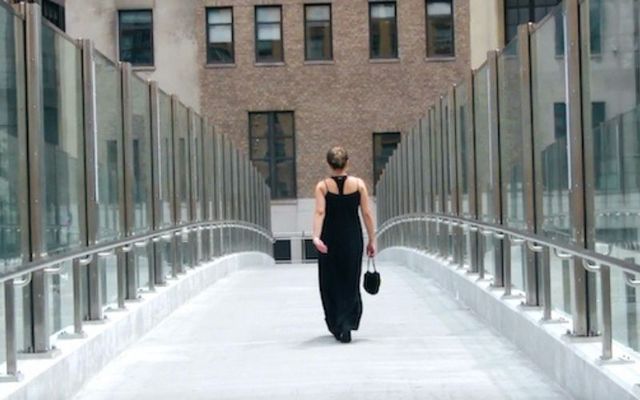There's no time like this time of year for a politician to pay attention to all things Irish.
But backers of a campaign to name a lower Manhattan foot bridge after Irish-born Revolutionary War hero Hercules Mulligan would welcome such a move at any time of year.
But St. Patrick's Day is coming up so Arthur Piccolo, chair of the Bowling Green Association in Lower Manhattan, believes this is a most appropriate time to name the bridge after an Irish immigrant who was a tailor by trade, and Revolutionary War spy who twice saved the life of George Washington.
"As St. Patrick's Day 2023 approaches, it is time for New York Governor Kathy Hochul to make a long overdue decision and officially name the unnamed pedestrian bridge over the Manhattan entrance to the Brooklyn Battery Tunnel the 'Hercules Mulligan Bridge and Cato's Walkway,'" said Piccolo.
Piccolo has now been joined in his campaign by Hilary Beirne of the New York St. Patrick's Day Parade.
Added Piccolo: "This would honor the forgotten Irish American immigrant Revolutionary hero Hercules Mulligan for his lifetime dedication to the American Cause in Lower Manhattan, highlighted by Mulligan and his assistant, the Black patriot Cato, both spying for George Washington during the Revolutionary War and saving Washington's life.
"Hercules Mulligan was a true hero of the American Revolution, yet his legacy has been largely forgotten. Mulligan was a skilled tailor, and he used his trade as a cover for his espionage activities. Cato, in his way, is equally worthy of this honor. They belong together in our history.
"Mulligan's most famous contribution to the American cause came when he and his assistant Cato uncovered a plot to assassinate George Washington. They overheard a group of British officers discussing their plans in Mulligan's tailor shop and immediately reported the information to Washington. As a result, Washington was able to avoid the assassination attempt and continue leading the Continental Army.
"Mulligan went on to serve the American cause in many other ways. He used his connections as a tailor to gather much more intelligence on British troop movements and supply lines. He also helped to smuggle messages and supplies to American prisoners of war held by the British."
But despite his many contributions, Mulligan's legacy, according to Piccolo, has been largely forgotten.
"Naming the pedestrian bridge over the Brooklyn Battery Tunnel after him would be a fitting tribute to this forgotten hero. The bridge is a highly visible location that thousands of New Yorkers and tourists pass through every day. Naming it after Mulligan would bring attention to his many contributions to the American cause and remind New Yorkers of the vital role that immigrants have played in shaping our country. Likewise Cato."
In a letter to Governor Hochul, Hilary Beirne makes a similar plea.
States Beirne in his letter: "As the Founding Chairman of the NYC St Patrick's Day Foundation, I endorse the Bowling Green Association, and the Sons of the Revolution in the State of New York, Inc. resolution thereby endorsing the proposal to name the pedestrian bridge over the Manhattan entrance to the Brooklyn-Battery Tunnel as the Hercules Mulligan Bridge & Cato’s Walkway.
"It would be very much appreciated if a decision could be made concerning the naming of the 'Hercules Mulligan Bridge & Cato Walkway' prior to the St. Patrick's Day flag raising at Bowling Green on March 16."
Hercules Mulligan, a Derry native, was a close friend of Alexander Hamilton and helped convince Hamilton to support independence in 1775. The two are buried in Trinity Church Cemetery in Lower Manhattan. Mulligan is portrayed in the Broadway musical “Hamilton,” and is also featured in the AMC drama series “Turn."
Mulligan’s life might have been that of a contented colonist. He was Protestant by birth and married the niece of a Royal Navy admiral. But the fires of American patriotism were spreading. And they were burning hot in New York City which, in those days, was clustered at the southern end of Manhattan.
Hercules Mulligan saved the life of George Washington on two occasions. Those who want his name to be publicly honored at that southern end of Manhattan are awaiting but one decision.






